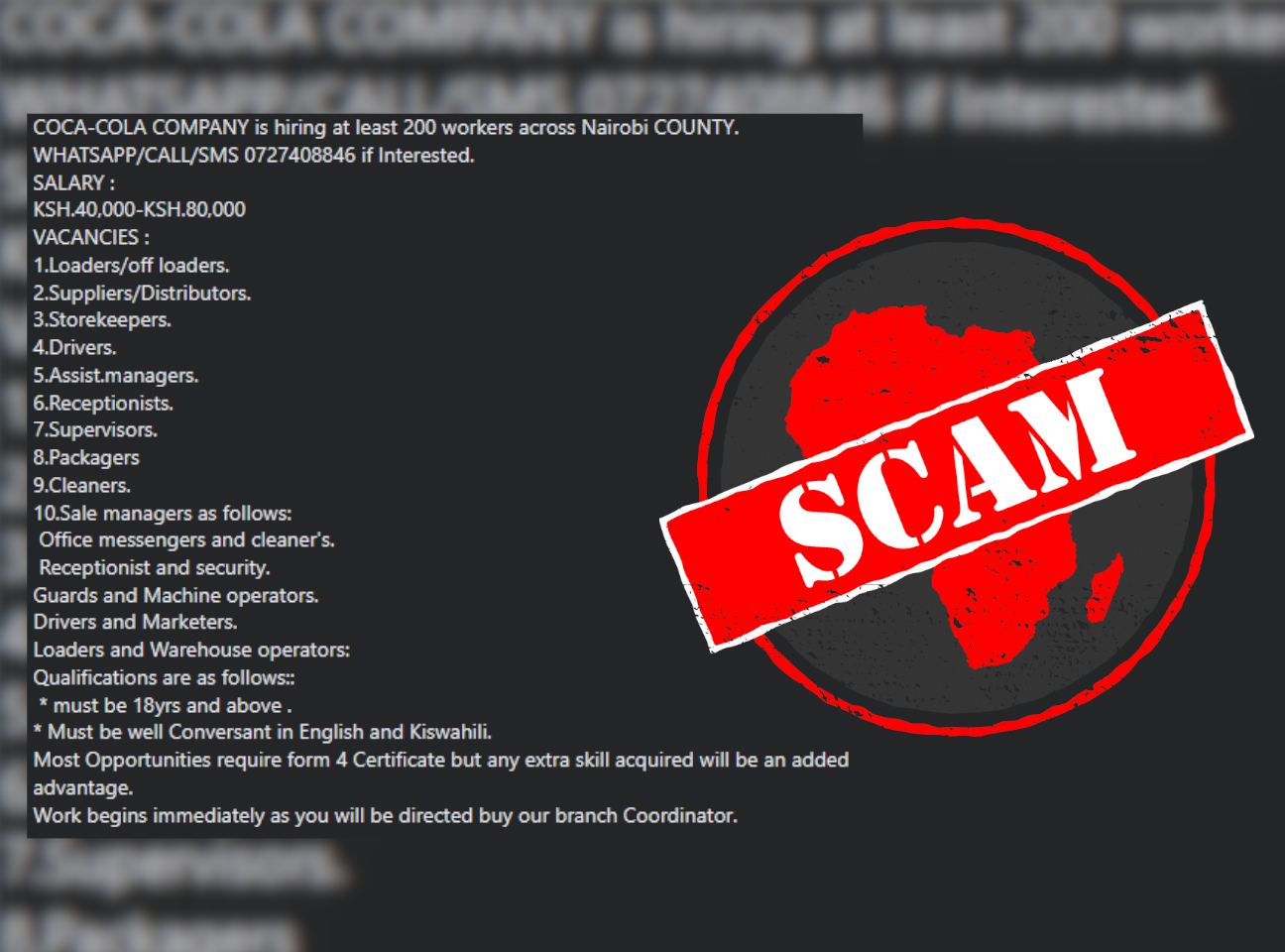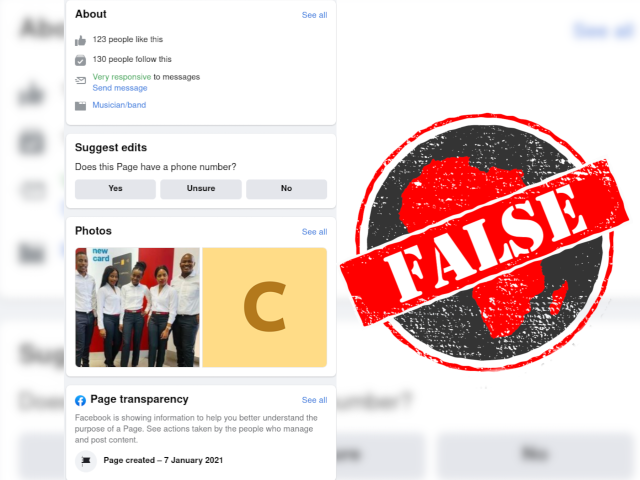IN SHORT: Beware, Coca-Cola Kenya doesn't advertise jobs through random Facebook posts or ask applicants to apply via WhatsApp. Facebook posts claiming the company is recruiting in Nairobi county are a scam.
“Coca-Cola company is hiring at least 200 workers across Nairobi county,” reads a job advertisement posted on Facebook in Kenya in August 2023.
Interested people are asked to contact the company by call, text or Whatsapp at a certain listed number.
The post advertises “available opportunities” for various positions, including receptionists, supervisors, storekeepers, drivers, suppliers and distributors.
Applicants must be 18 years of age or older and must be “well conversant” in English and Kiswahili. Salaries range from KSh40,000 to KSh80,000 (US$280 to $550), according to the post.
The ad has been posted in different public groups on Facebook with tens of thousands of members here, here, here and here.
But is beverage giant Coca-Cola really hiring across Nairobi county? We checked.

Red flags
The poor wording of the ad is the first sign that it's a scam. A company like Coca-Cola wouldn't send out such a badly written ad.
Another red flag is that those interested are asked to call or send a message via text or WhatsApp to the phone number provided. Reputable companies provide official email addresses.
There’s no link in the ad to the official Coca-Cola Kenya office contacts, and the phone number doesn’t match any listed by Coca-Cola on its website.
We also found that Coca-Cola Kenya’s verified official Facebook page is not advertising any of the jobs listed in the post.
Africa Check contacted Coca-Cola to find out if the jobs were legitimate. The company dismissed the ad as fake.
“Kindly note that the above information is misleading and false. Any of our job related posts are usually posted on our official social media platforms. Stay alert,” they told us via Facebook.
The ad circulating on Facebook is a scam.
To protect yourself against similar scams, see Africa Check’s guide to Facebook scams and how to spot them.
Republish our content for free
For publishers: what to do if your post is rated false
A fact-checker has rated your Facebook or Instagram post as “false”, “altered”, “partly false” or “missing context”. This could have serious consequences. What do you do?
Click on our guide for the steps you should follow.
Publishers guideAfrica Check teams up with Facebook
Africa Check is a partner in Meta's third-party fact-checking programme to help stop the spread of false information on social media.
The content we rate as “false” will be downgraded on Facebook and Instagram. This means fewer people will see it.
You can also help identify false information on Facebook. This guide explains how.





Add new comment